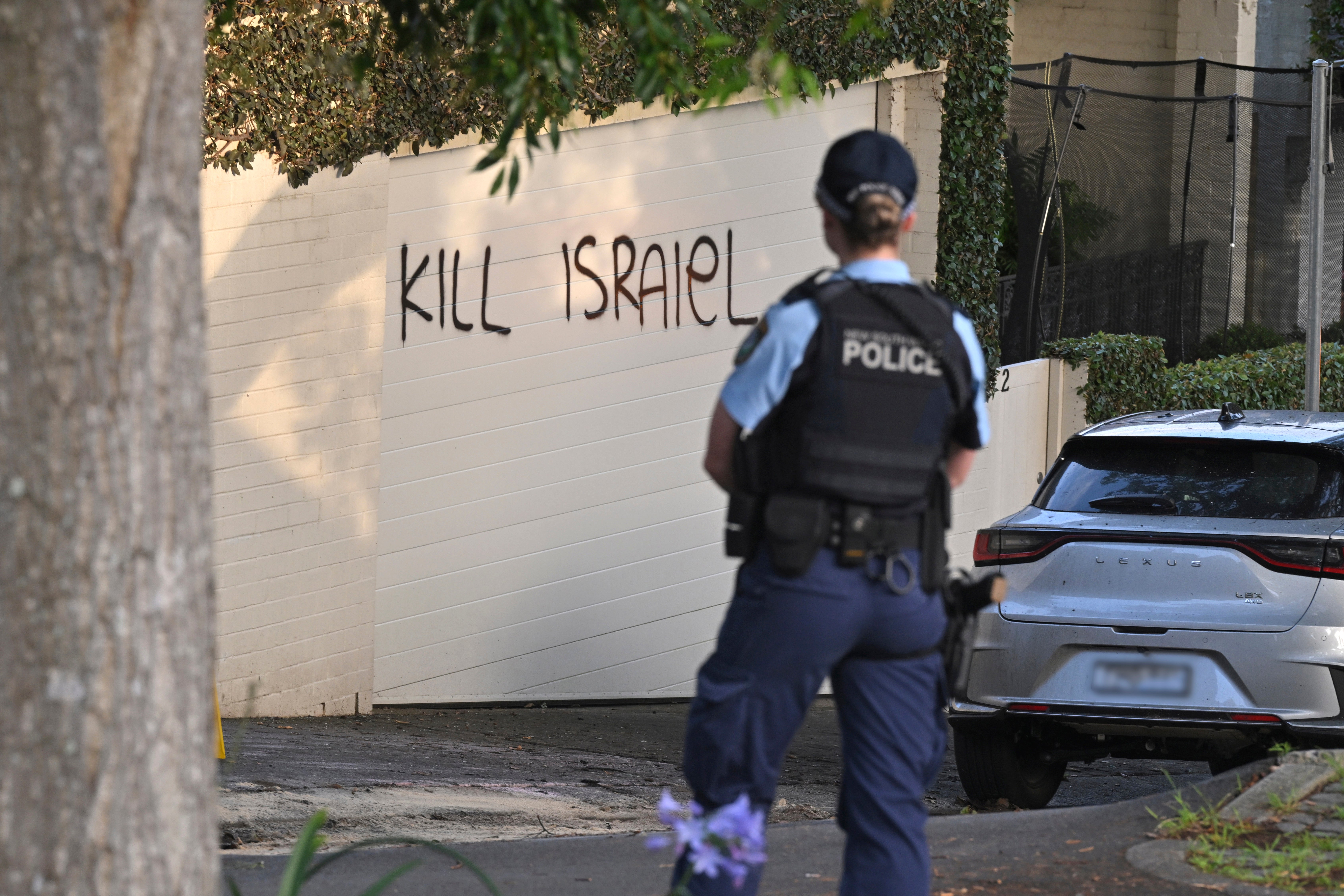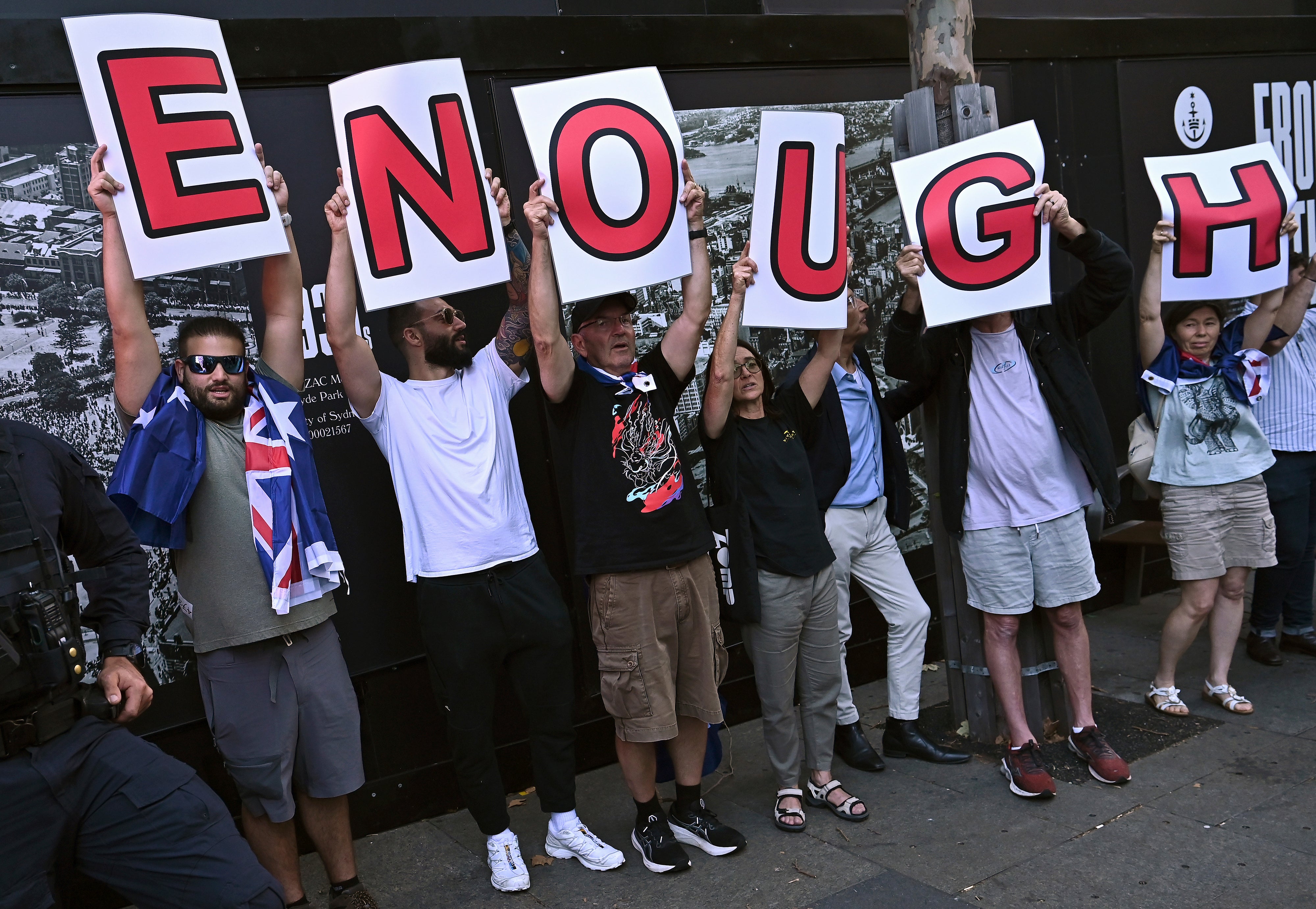Australia has been shaken by a series of antisemitic attacks, with 12 people arrested since October for vandalising or setting fire to synagogues, schools and homes.
Hundreds more have been charged in the past year for crimes against Jewish people.
There has been an outpouring of condemnation following the attacks, and a fraught debate about who is to blame.
But on Thursday, Australia’s federal lawmakers acted almost unanimously to advance hate crime laws, in a rare display of unity.
Prime Minister Anthony Albanese said the government wanted “people who are engaged in antisemitic activities to be caught, to be charged and to be put in the clink”.
Meanwhile, opposition leader Peter Dutton said it was a “time of national crisis”.
What’s happening in Australia?
Jewish and Muslim organisations and hate researchers have recorded drastic spikes in hate-fueled incidents on both groups since the 7 October 2023 Hamas attack on Israel that triggered the war in Gaza. And although how groups define antisemitism and Islamophobia differs, the numbers the organisations cite all show a rise in incidents.
Antisemitic episodes in the two biggest cities, Sydney and Melbourne — home to 85 per cent of Australia’s Jewish population — have drawn the highest profile because they’re severe, unusual and public.

Since November they've included:
Counter-terrorism officials have arrested 12 people in connection with those crimes. Nearly 200 more have been charged since October 2023 in the state of New South Wales – where Sydney is located – with crimes linked to antisemitism, police say.
Who’s committing the crimes?
Investigators are examining whether criminals for hire were paid by foreign actors to carry out the recent attacks, leaders of the taskforce said in January. They did not specify what foreign interests they believed were responsible.
Days later, officials said the 12 arrested by the taskforce don't share the antisemitic ideology expressed by their crimes, underscoring suggestions that the acts were orchestrated abroad.
The revelations were strange — but not unprecedented, analysts said.
“It’s not completely new, the connection between ideological groups and criminal groups,” said Matteo Vergani, a researcher of hate and extremism with Deakin University. “What’s new is that it usually happens in relation to larger scale terrorist attacks. So that is surprising.”
What’s behind the rise?
Lawmakers in speeches this week said the 7 October attacks by Hamas had provoked a outburst of antisemitism at levels Australia had not registered before.
In tense public debates echoing those in the United States and elsewhere, right-leaning lawmakers and some Jewish leaders — among them Peter Wertheim from the Executive Council of Australian Jewry — have accused pro-Palestinian demonstrators, particularly “progressives” and university students, he said, of fuelling the crimes.
Demonstrators use opposition to Israel to target Jews and give antisemitism “a new social licence”, he said.
Other Jewish leaders were more cautious. The episodes were “alarming and worthy of attention”, said Sarah Schwartz from the Jewish Council of Australia.
“But I think the real danger we see here with linking this spate of antisemitic incidents to the Palestine solidarity movement is that that sort of language breeds division, breeds anti-Palestinian racism, breeds Islamophobia and is also bad for Jews as well,” she said.

What's the government's response?
Albanese’s centre-left government on Thursday approved measures in the House of Representatives that will create new and bolstered hate crime offences protecting a raft of characteristics, including race, religion and gender.
Amendments from the opposition include the imposition of mandatory prison terms for terrorism offences — which the prime minister had rejected before —- and for displaying hate symbols.
The bill passed 117 votes to 13. It's expected the Senate will pass it into law.
Other initiatives since last January include:
Some states have passed their own laws; New South Wales also revealed proposed hate crime measures Thursday.
What’s different in Australia?
By all measures, anti-Jewish hate has spiked across the U.S., Europe and the United Kingdom since October 2023 — even though many leaders have denounced it — prompting tens of thousands of Jews to leave Europe, according to some figures.
However, Australia’s situation had distinctive factors, analysts said. One was the claim that the primary agitators could be based abroad.
Another was the shock of such hate in a country far from the Middle East where a small community of Jews — fewer than 120,000 people, or about 0.5 per cent of the population — has lived relatively peacefully, said Wertheim.
Australia’s restrictive gun laws might have led the perpetrators to commit vandalism crimes, Vergani said. Semiautomatic weapons were outlawed in Australia after a gun massacre in 1996.
But the episodes have also driven a fraught political climate ahead of a national election expected in May.
Why are politicians debating it?
Antisemitic attacks have led national news and prompted daily questions for Albanese — and claims of inaction from his main political opponent, Liberal party leader Dutton. Meanwhile, Dutton’s detractors have lambasted him for politicising the crimes — a charge he has rejected — and for urging a freeze on visas for Palestinians fleeing the war.
Lawmakers this week focused on the wave of antisemitism since 7 October 2023 and ignored “a very long history of antisemitism and racism” against other groups in Australia, including Muslims and Indigenous people, said Schwarz.
Still, the crimes have terrified Australian Jews, she added. Vergani said Jewish people tell him they have not experienced such hatred in Australia before.
“They’ve never in their lives had this continuous feeling that something bigger could happen,” he said.
Associated Press writers Rod McGuirk in Melbourne, Australia and Danica Kirka in London contributed to this report.







